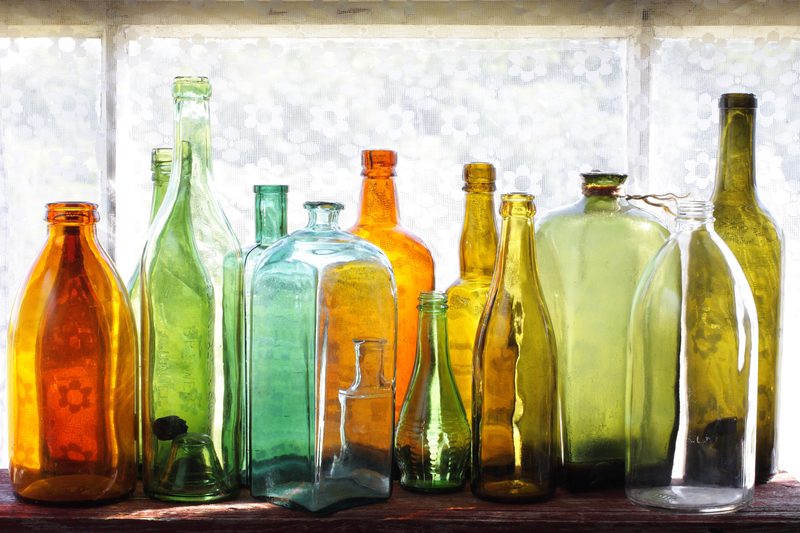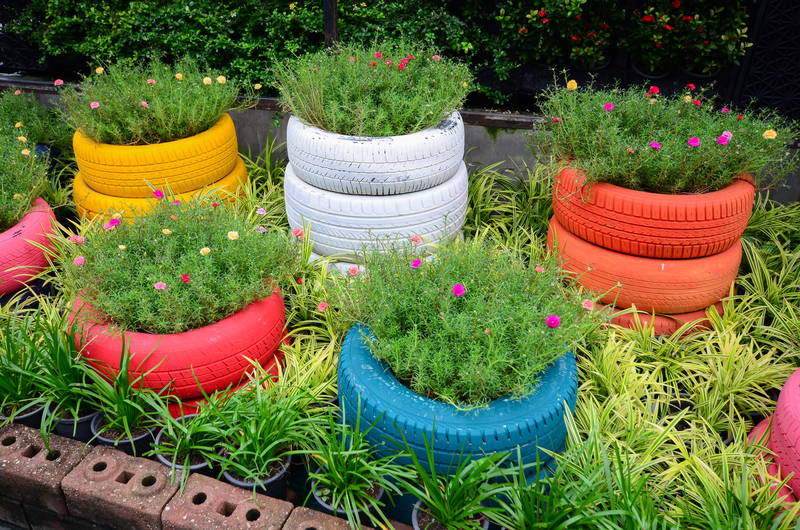Interactive Recycling Projects for Children: Inspiring Environmental Champions
Creating awareness about environmental conservation among young ones is crucial. One fun and highly effective approach is introducing interactive recycling projects for children at home, school, or in community groups. These hands-on activities not only educate kids about the importance of recycling, but they also foster creativity, teamwork, and responsibility.
In this comprehensive article, we will explore a variety of engaging recycling projects for kids. From turning waste into beautiful artwork to interactive games and science experiments, you'll find eco-friendly activities that cater to all age groups. By the end, you'll be armed with ideas, tips, and detailed instructions, ensuring your next kids' recycling workshop is both enjoyable and educational.

Why Encourage Recycling Through Interactive Projects?
Studies have shown that hands-on recycling projects for children lead to better understanding and retention of environmentally friendly habits. Here's why:
- Environmental Awareness: Kids learn how their everyday actions impact the planet.
- Skill Development: Activities develop problem-solving, creativity, and collaboration skills.
- Responsibility: Children feel empowered and responsible for positive change.
- Fun & Engagement: Interactive tasks transform dull lessons into exciting experiences.
Let's dive into some of the most popular kids recycling activities and DIY upcycling projects that make learning about sustainability truly engaging.
Top Interactive Recycling Projects for Kids
1. DIY Recycled Art Creations
Art is a brilliant medium to spark creativity and eco-consciousness. Turn everyday waste materials into beautiful masterpieces with these artistic recycling projects for children:
- Egg Carton Animals: Cut egg cartons into different shapes and use paints, colored paper, and other recyclable scraps to make turtles, caterpillars, or birds.
- Plastic Bottle Planters: Upcycle empty plastic bottles by cutting them into planters. Kids can decorate them with markers and stickers before growing herbs or flowers.
- Magazine Collage Art: Collect old magazines and let children cut out interesting images, words, or colors to create collages on cardboard bases.
- Recycled Mosaic Masterpieces: Smash old tiles, CDs, or bottle caps and use them to form beautiful mosaics on wood or stiff paper.
These creative recycling projects for kids develop fine motor skills while demonstrating how waste can become wonderful.
2. Interactive Sorting Games
Understanding what can be recycled is just as important as the recycling process itself. Sorting games are a fantastic way to reinforce these lessons:
- Recycling Relay Race: Set up bins labeled paper, plastic, metal, and glass. Gather a pile of (clean) recyclable materials. In teams, children race to sort items into the correct bins.
- Trash or Treasure?: Place common household items in a box. Each child decides if the item should go into the recycle bin, compost, or landfill.
- Digital Sorting Apps: Use online resources or educational apps that simulate waste sorting for tech-savvy youngsters.
- Color Code Sorting: Assign colors to different categories (blue for paper, yellow for plastic, etc.) and have kids organize recyclables accordingly.
Interactive recycling challenges for children like these help embed sustainable habits and critical thinking around the types of household waste.
3. Science Experiments Using Recycled Materials
Science-related recycling projects for children are a great way to combine environmental lessons with STEM learning. Try these exciting experiments:
- Compost in a Bottle: Use an empty clear plastic bottle as a mini composter. Layer soil, food scraps, and leaves, then observe the decomposition process over several weeks.
- Homemade Paper: Tear old paper into small pieces, soak them, and blend into pulp. Spread the pulp onto a mesh and let dry for new, recycled paper sheets.
- Solar Oven from Pizza Box: Transform a pizza box into a solar oven using aluminum foil and plastic wrap. Children can cook s'mores using sunlight and learn about renewable energy.
- Floating Recyclables: Use a basin of water to see which recyclables float or sink. Discuss why certain materials behave differently in water.
These interactive science activities using recyclables spark curiosity about both environmental and scientific principles.
4. DIY Upcycled Toys and Games
Upcycling teaches kids to see potential in discarded items. Here are a few homemade toy ideas for interactive recycling projects for children:
- Cardboard Box Playhouses: Use large appliance boxes to build forts, dollhouses, or spaceships. Paint and decorate together as a family or class.
- Tin Can Bowling: Clean and stack tin cans as bowling pins. Use a ball (even a rolled-up sock) and take turns playing.
- Milk Carton Birdhouses: Transform empty milk cartons into birdhouses. Paint, cut holes, and add a perch using an old spoon or stick.
- Plastic Cap Crafts: Collect plastic caps for use as game pieces, counters, or materials in craft projects.
These upcycled toys from recyclables blend fun with a strong lesson about resourcefulness and responsibility.
Organizing a Kids' Recycling Workshop: Step-by-Step Guide
Planning a kids recycling project day? Here's how to set up a successful, educational experience:
Step 1: Gather Materials
- Ask families to bring in clean recyclables: bottles, cans, cartons, newspapers, cardboard, etc.
- Provide art supplies like glue, scissors, markers, and paint for creative projects.
- Prepare bins or boxes for game-based activities.
Step 2: Educate & Inspire
- Start with a short, engaging presentation about recycling and why it matters.
- Show videos or read children's books featuring recycling heroes or eco-adventures.
- Discuss which common materials are recyclable in your local area.
Step 3: Project Time!
- Divide children into small groups and assign each group a different interactive recycling project to complete and present.
- Provide adult supervision and assistance as needed, but encourage problem-solving and teamwork.
- Let children decorate, build, and test their creations.
Step 4: Showcase & Reflect
- Host a "show and tell" session where each child or group displays their projects.
- Encourage kids to explain the recycling process and what they learned.
- Reward participation with eco-friendly prizes such as seed packets or reusable water bottles.
Going Further: Transforming Recycling Lessons into Lifelong Habits
While classroom or community center activities are great, embedding recycling habits at home is equally important. Here are a few simple ways to reinforce lessons learned from recycled craft projects for children:
- Set Up a Family Recycling Center: Make dedicated bins for glass, plastic, paper, and compost, have kids help sort items.
- Zero-Waste Challenges: Track how much trash your family produces in a week. Make a game out of reducing waste together.
- Shopping with Sustainability in Mind: Take children along on grocery runs and let them spot recyclable packaging.
- Community Cleanups: Join local litter pick-up events or recycling drives, turning them into family bonding experiences.
Remember, children learn best by example. When families and educators adopt sustainable habits, kids are likely to follow--laying the groundwork for a future generation of environmental stewards.
Adapting Recycling Projects for Different Ages and Abilities
Not every child will engage with recycling in the same way. Here's how to tailor interactive recycling ideas for children of various age groups:
- Preschoolers (Ages 3-5): Simple sorting games, basic bottle crafts, and story-based learning are best.
- Elementary School (Ages 6-10): Encourage more complex upcycling projects and introduce basic science experiments.
- Preteens and Teens: Challenge older kids to design their own projects, conduct environmental research, or lead group activities for younger children.
- Children with Special Needs: Provide tactile, hands-on activities and visual aids. Maintain a flexible pace and offer plenty of encouragement.
By adapting your recycling project ideas to each child's interests and abilities, you ensure a positive and inclusive learning experience.

Resources for Extended Learning and Engagement
To further enhance your recycling curriculum, check out the following:
- Online Games and Quizzes: Websites like National Geographic Kids and Recycle City offer interactive games focused on recycling and sustainability.
- Printables and Worksheets: Use downloadable coloring pages, sorting charts, and scavenger hunts to supplement hands-on projects.
- Children's Books on Recycling: Titles such as "Michael Recycle" and "The Adventures of a Plastic Bottle" inspire through storytelling.
- Instructional Videos and Documentaries: Short educational clips or longer shows like Peep and the Big Wide World simplify complex topics for kids.
These multifaceted resources deepen understanding, ensuring interactive recycling projects for children are both fun and grounded in real-world knowledge.
Conclusion: Building a Greener Future, One Project at a Time
Interactive recycling projects for children are more than just crafts or classroom games. They are powerful tools that reinforce environmental literacy, creativity, and problem-solving. From recycled art endeavors to upcycled toys, science experiments, and group challenges, these projects connect young minds to sustainability in meaningful ways.
Whether you're a parent, teacher, or youth leader, you can spark a lifelong passion for protecting the planet by making recycling interactive and enjoyable. Small hands can make a big difference--so get started with these creative recycling project ideas today!
For ongoing inspiration, keep exploring new ways to integrate interactive recycling activities for kids into your everyday routines. Together, we can nurture a future that is greener, kinder, and more sustainable.